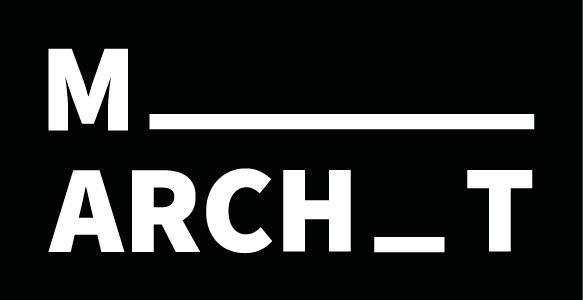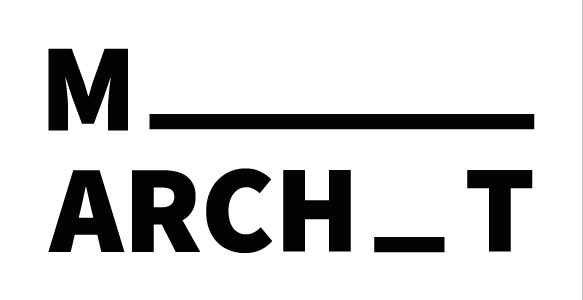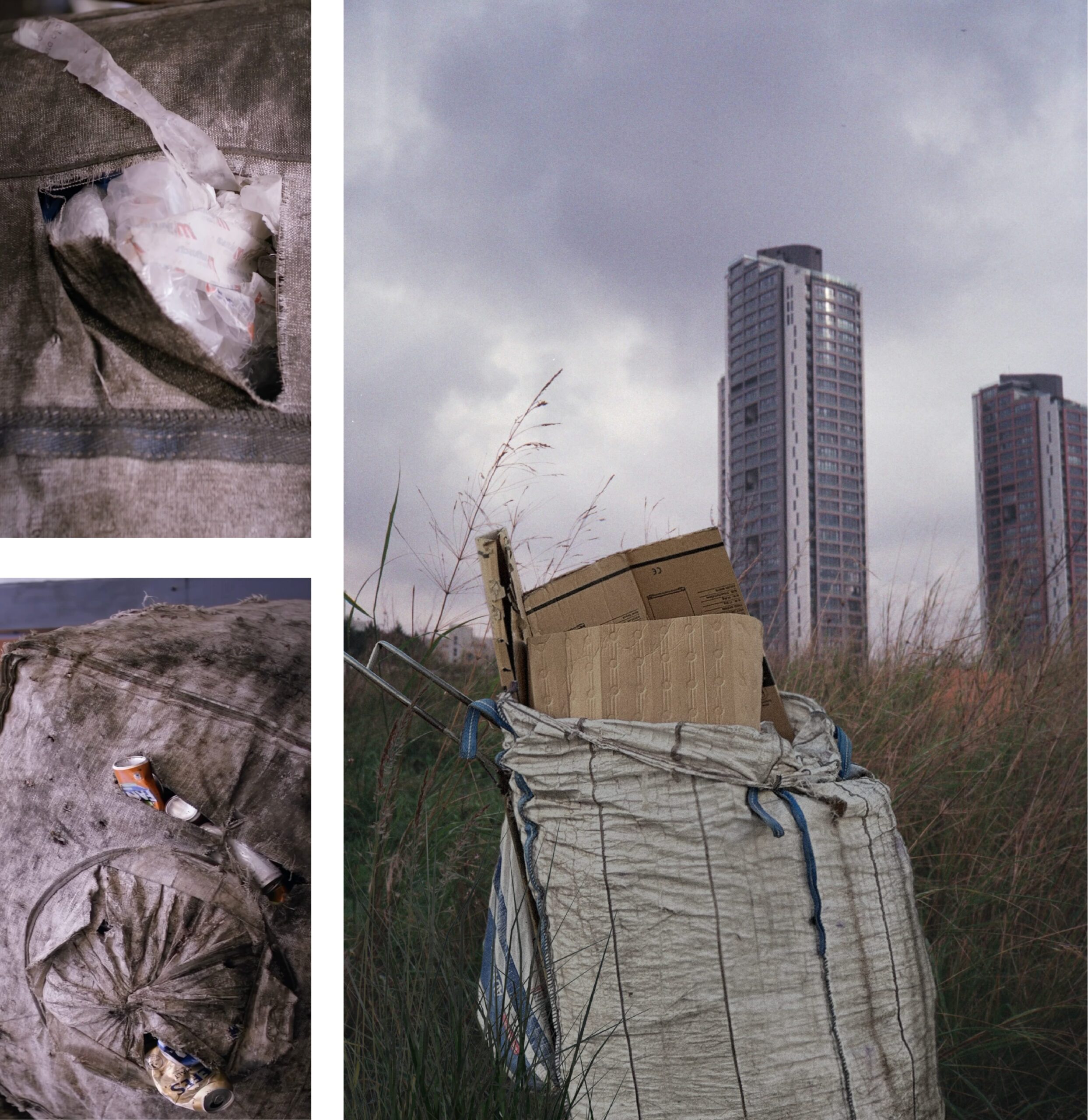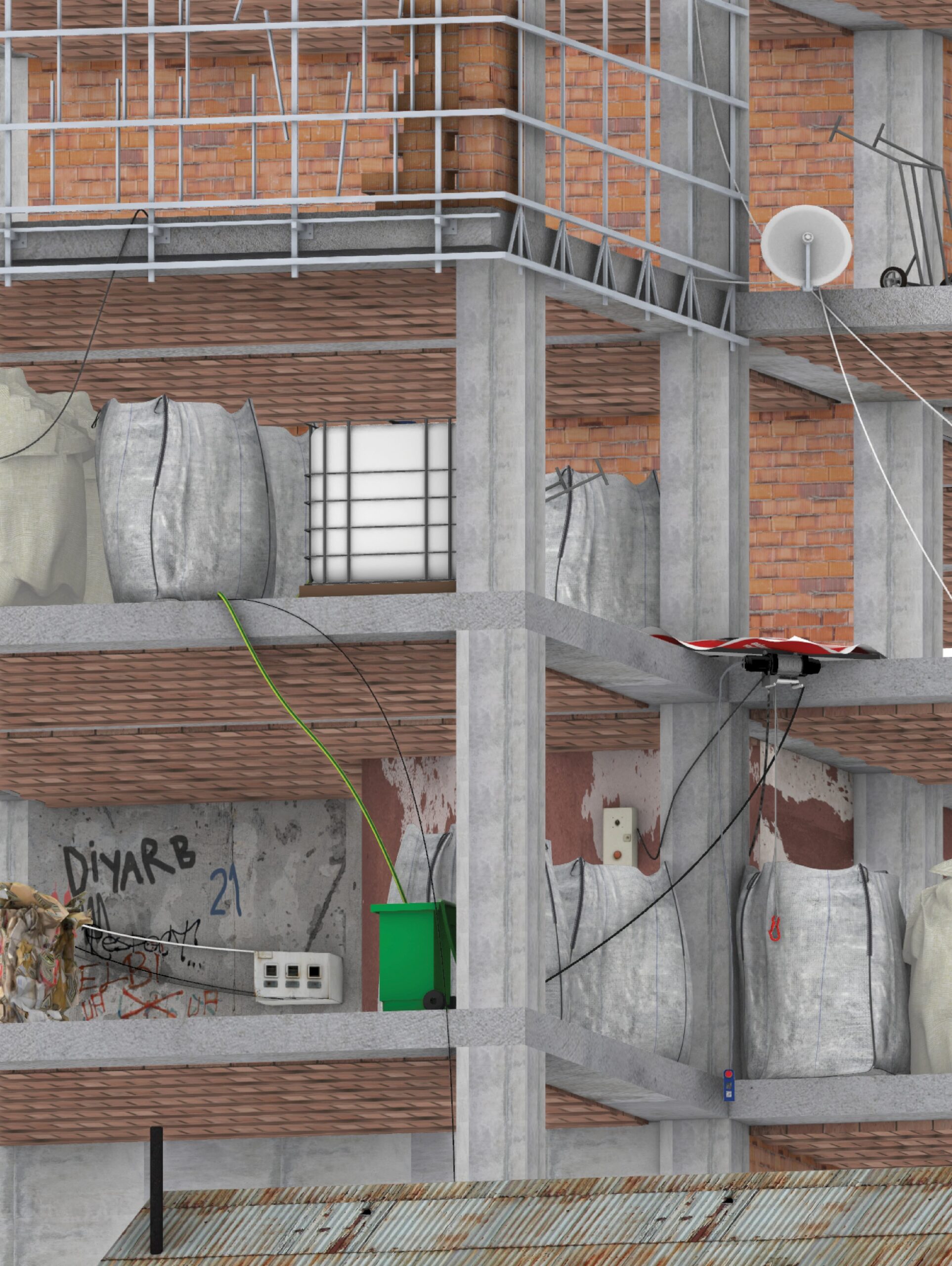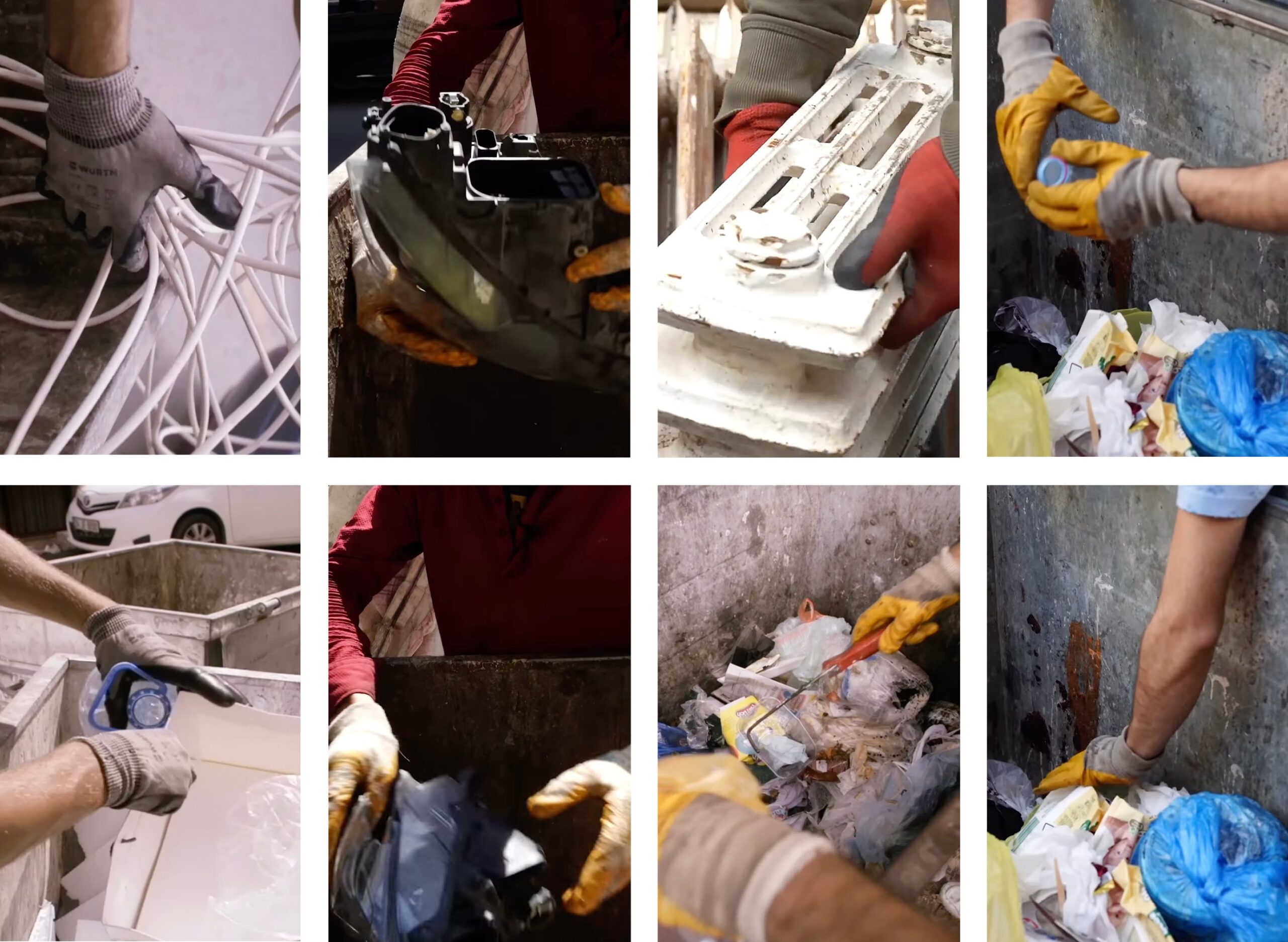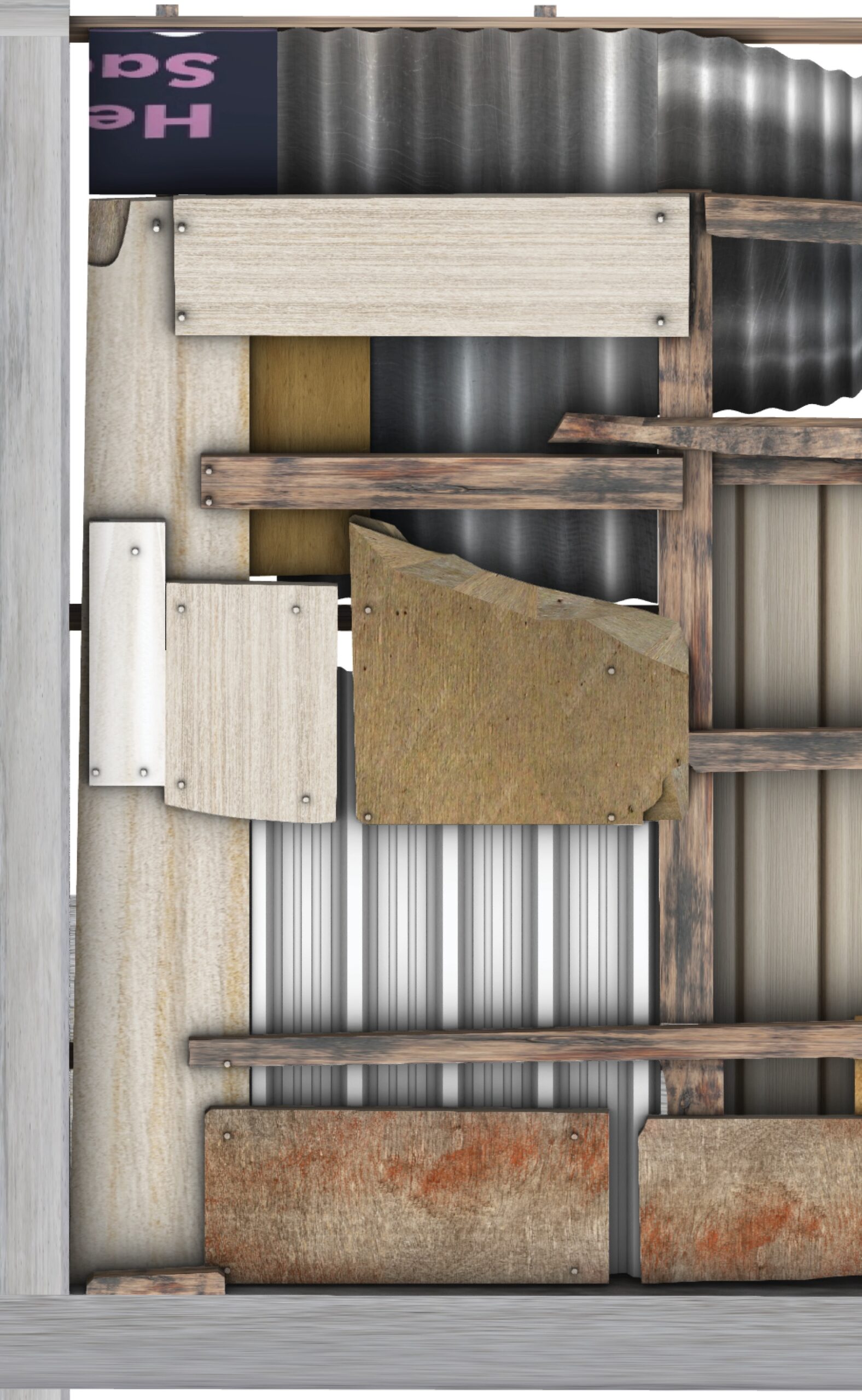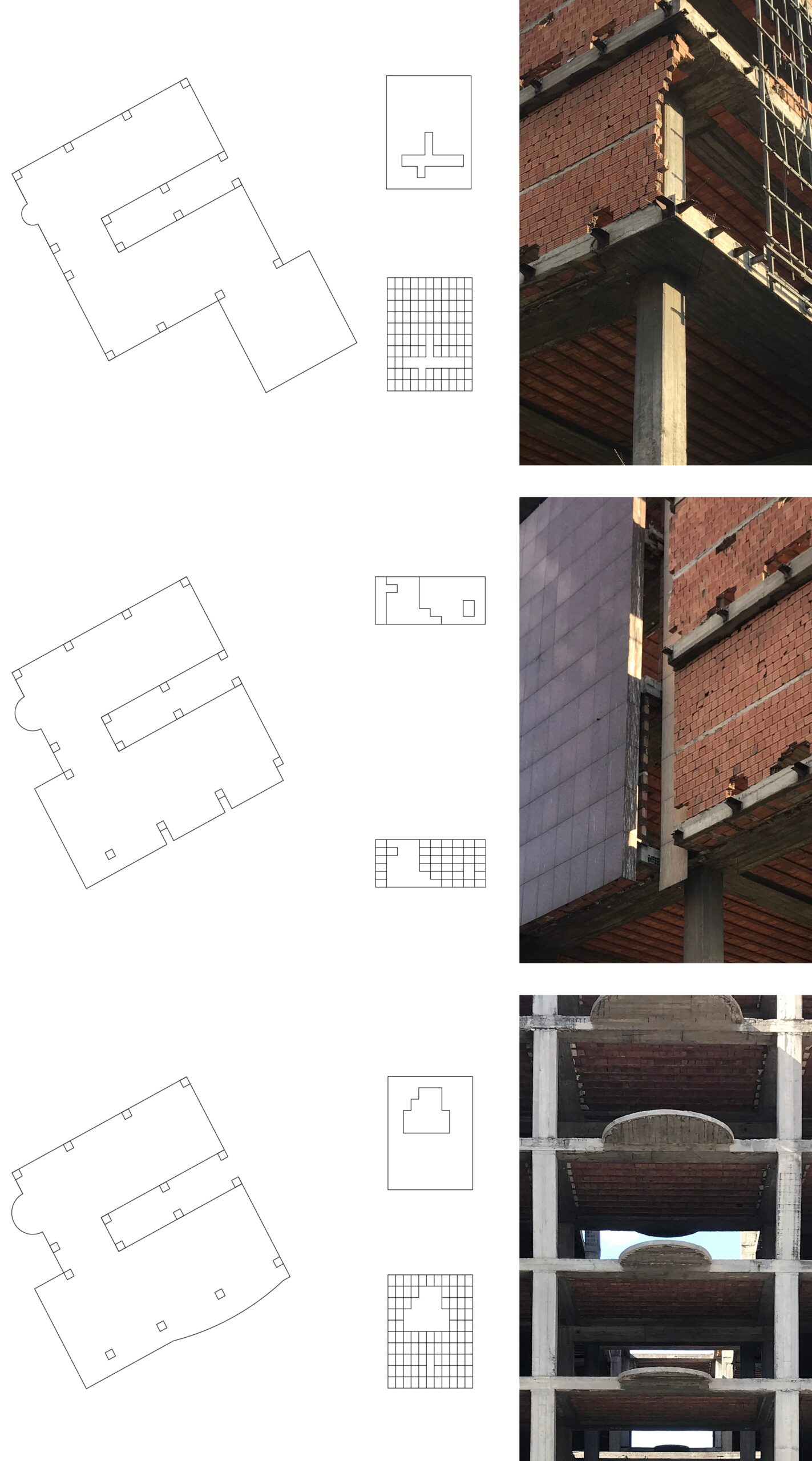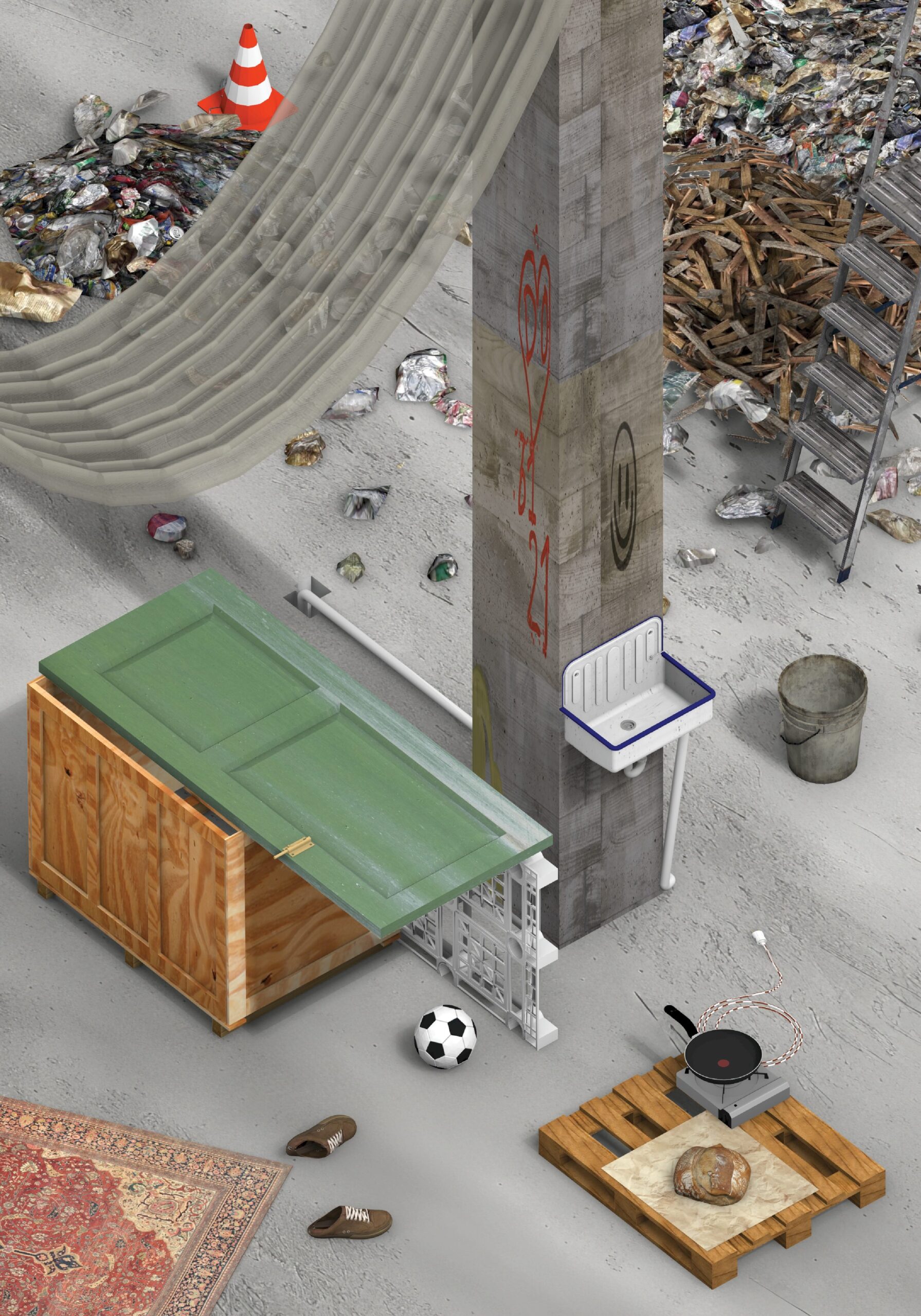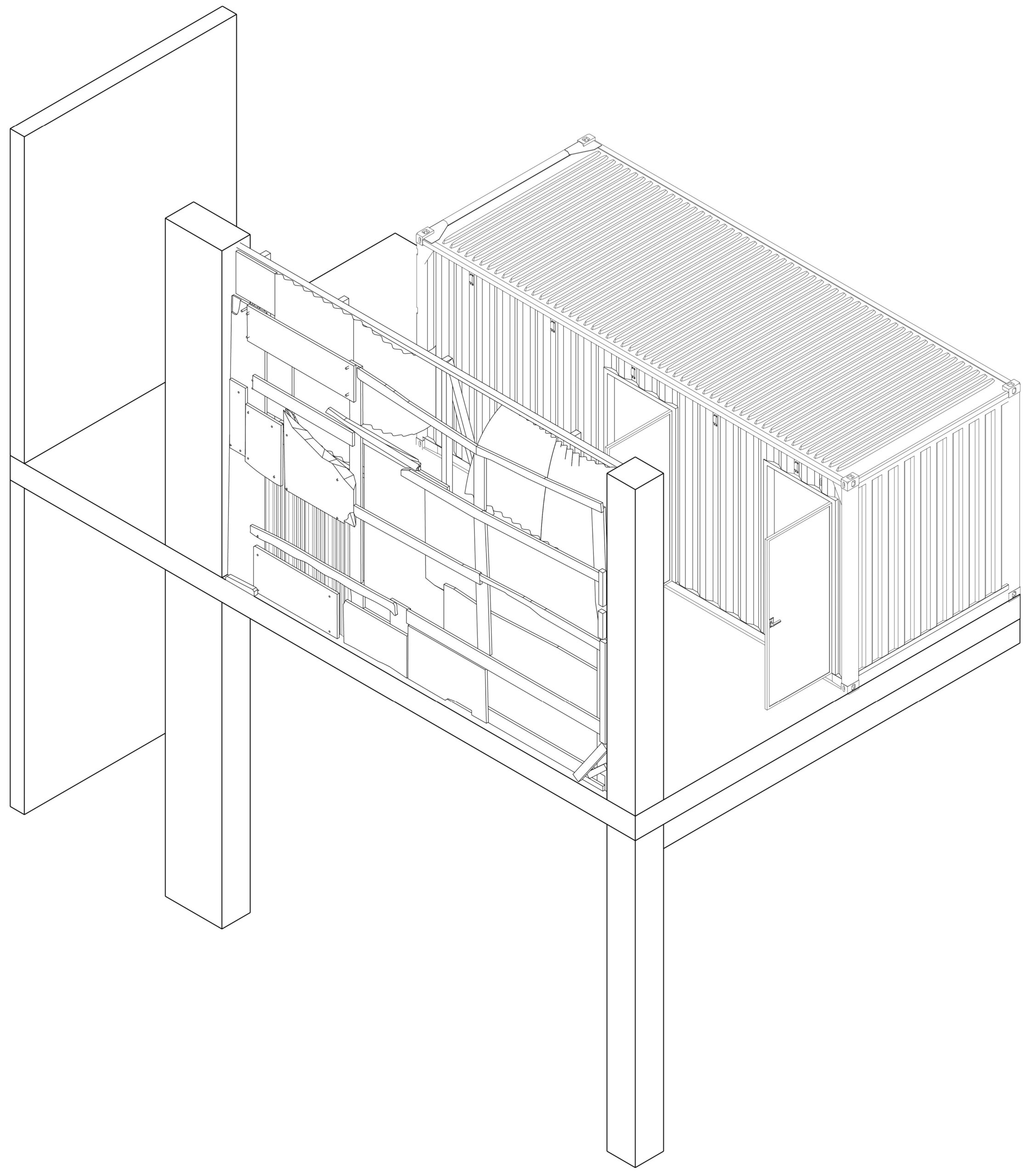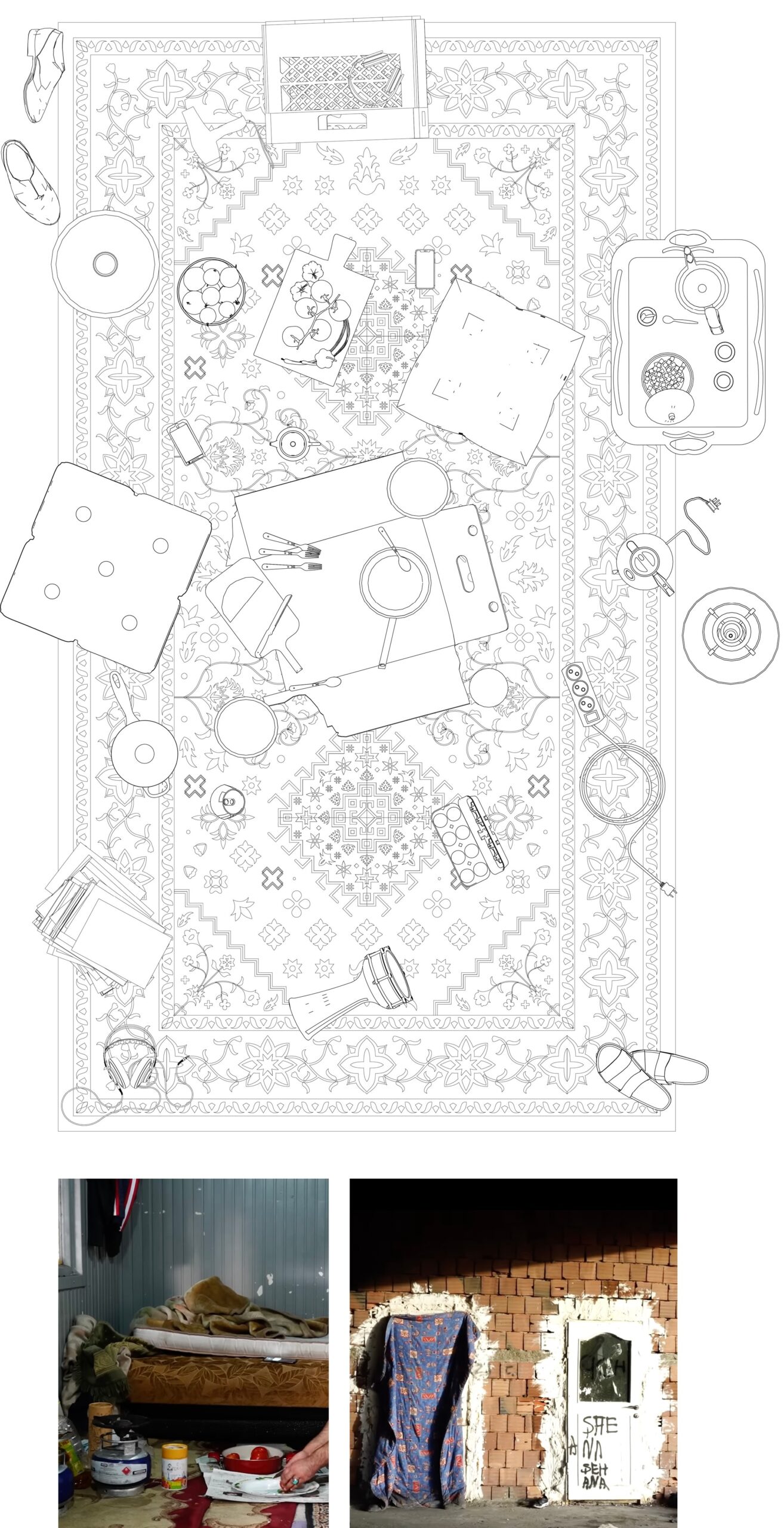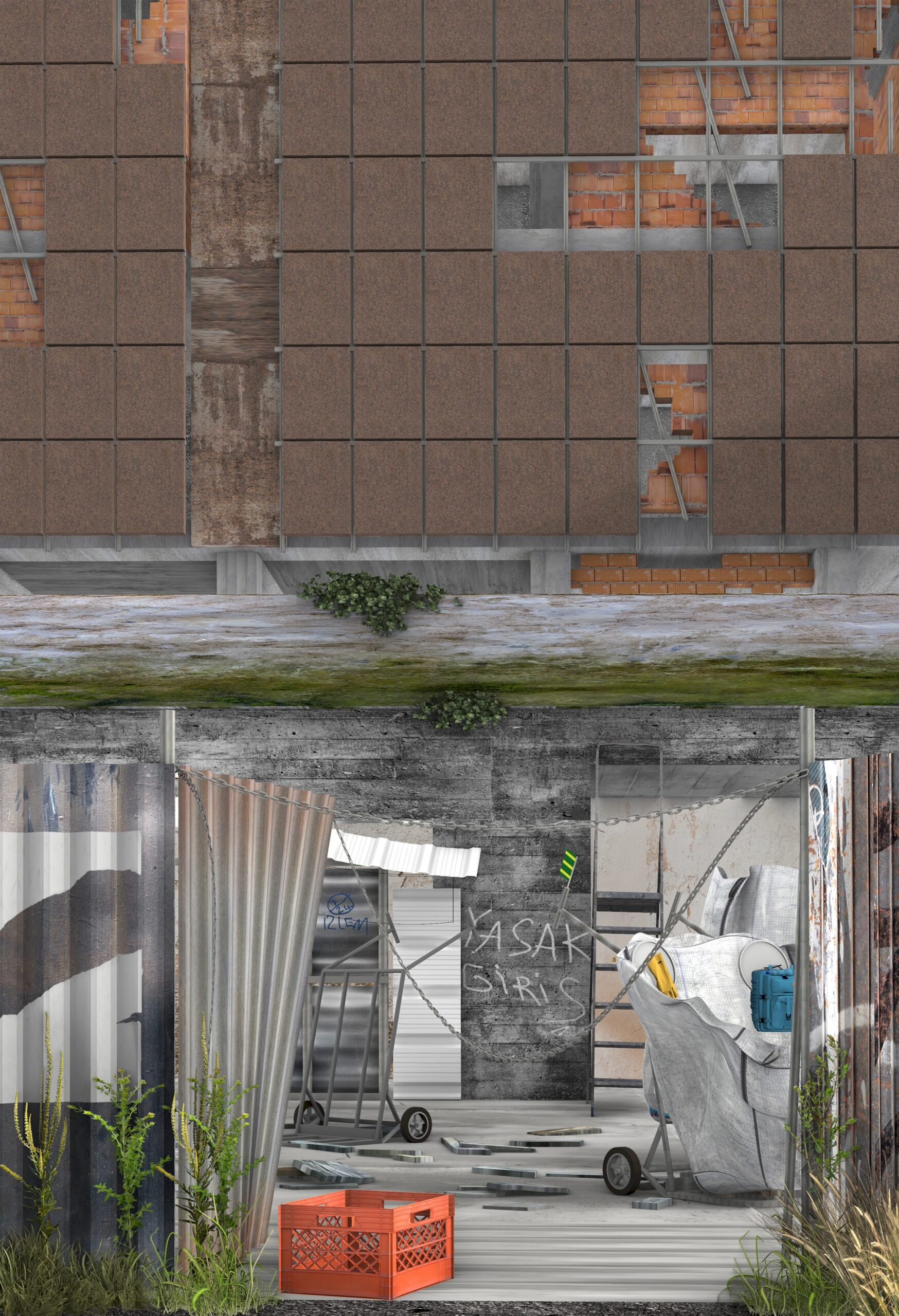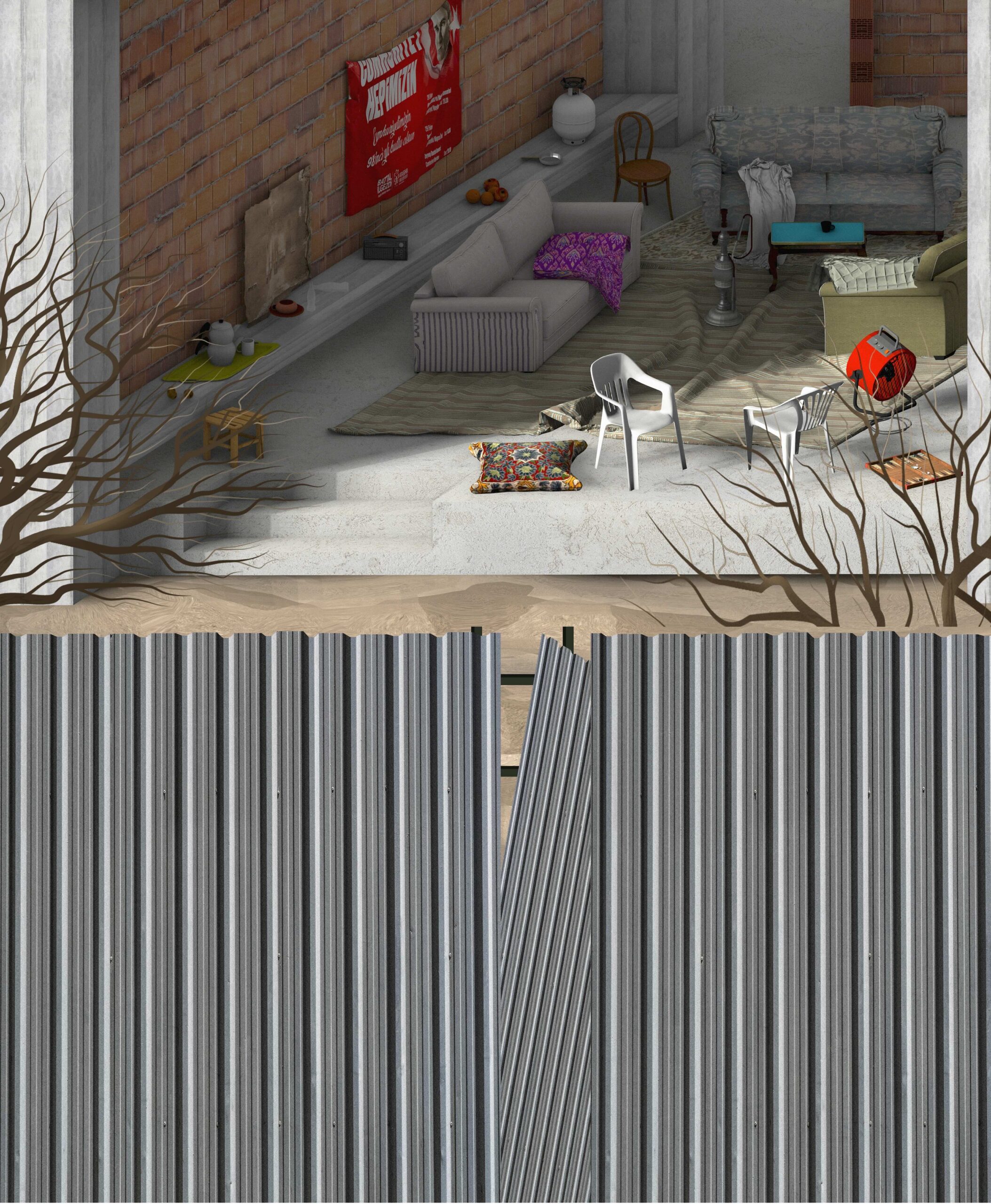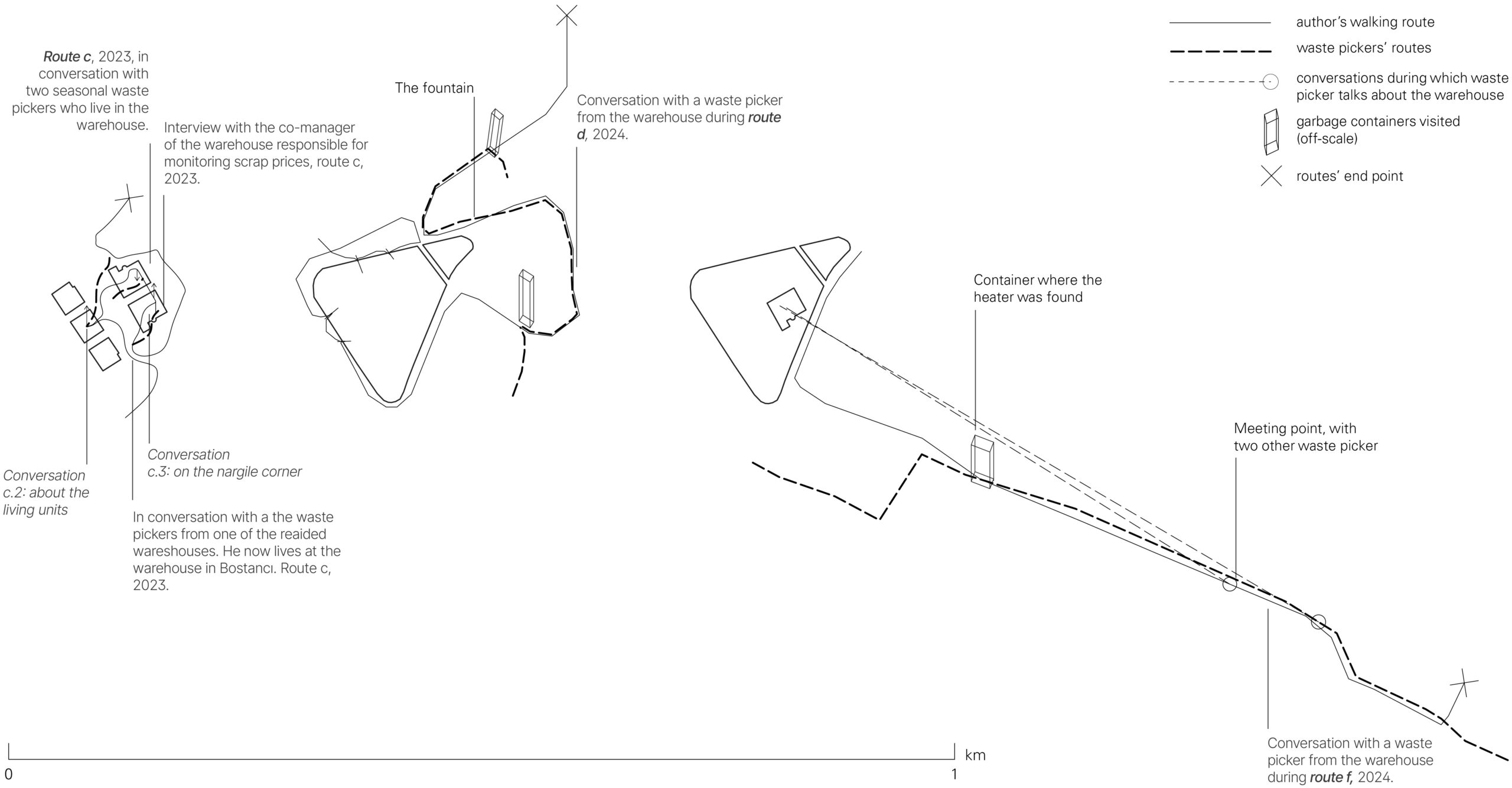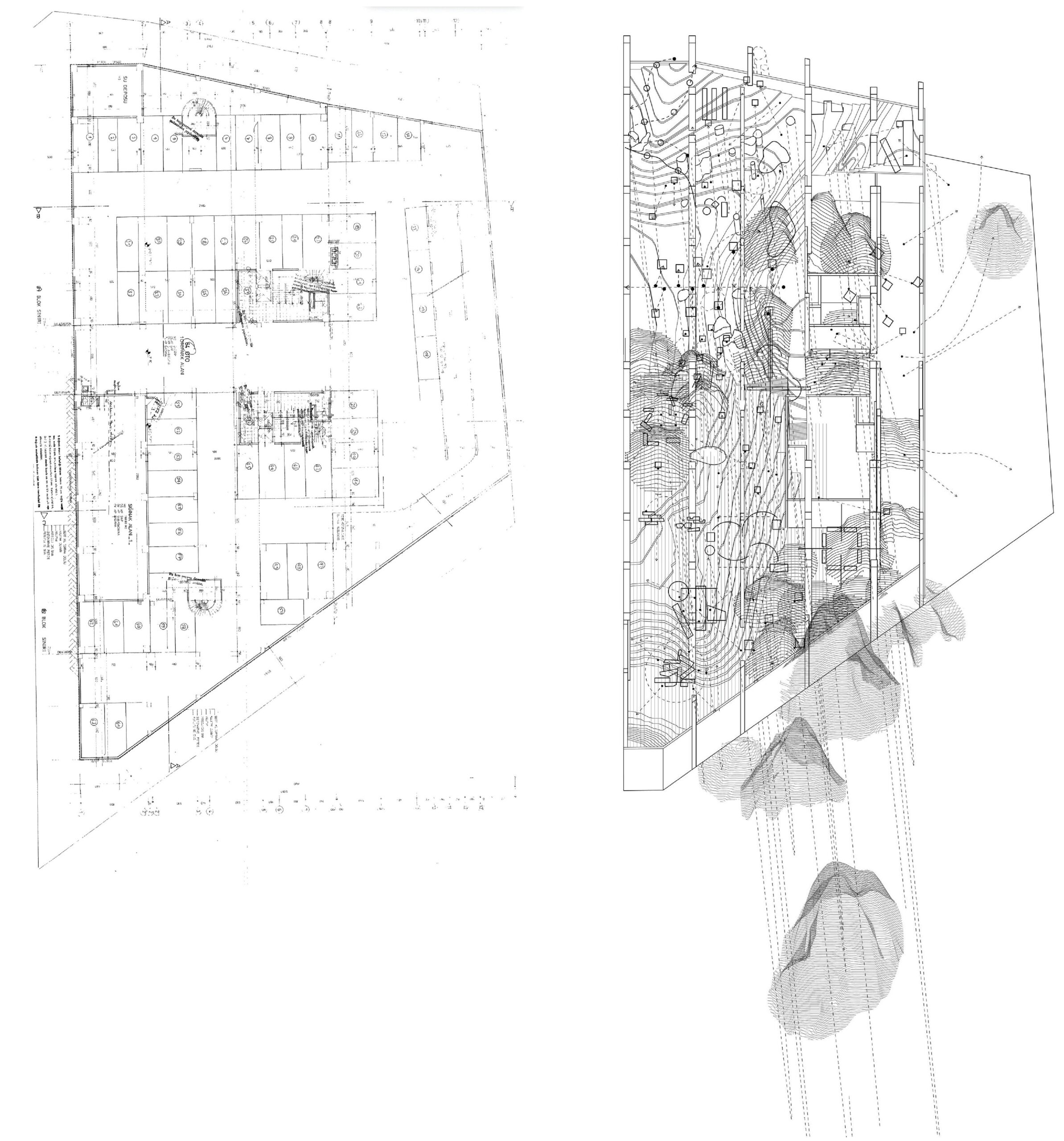A çekçek’s-length examines Istanbul’s waste(picking) landscapes, focusing on the çekçek—a hand-pulled cart central to waste pickers’ labor—and their marginalization in urban society. Using methods like (auto)ethnography, participant observation, and mental mapping, it delves into the spatial practices and daily lives of waste pickers.
The thesis blends site biographies, oral histories, and subaltern knowledge to portray waste ecologies as essential to urban systems rather than anomalies. By following the çekçek through diverse discarded commons, such as the ruins of an abandoned shopping mall construction and an unpredictable network of garbage containers, it reveals the act of waste picking as a response to urban and environmental disruptions, highlighting adaptation and radical care. It envisions a city that learns from its waste, fostering coexistence between humans and non-humans on a damaged planet.
You can find a more detailed documentation of the thesis on Ekin’s website.
